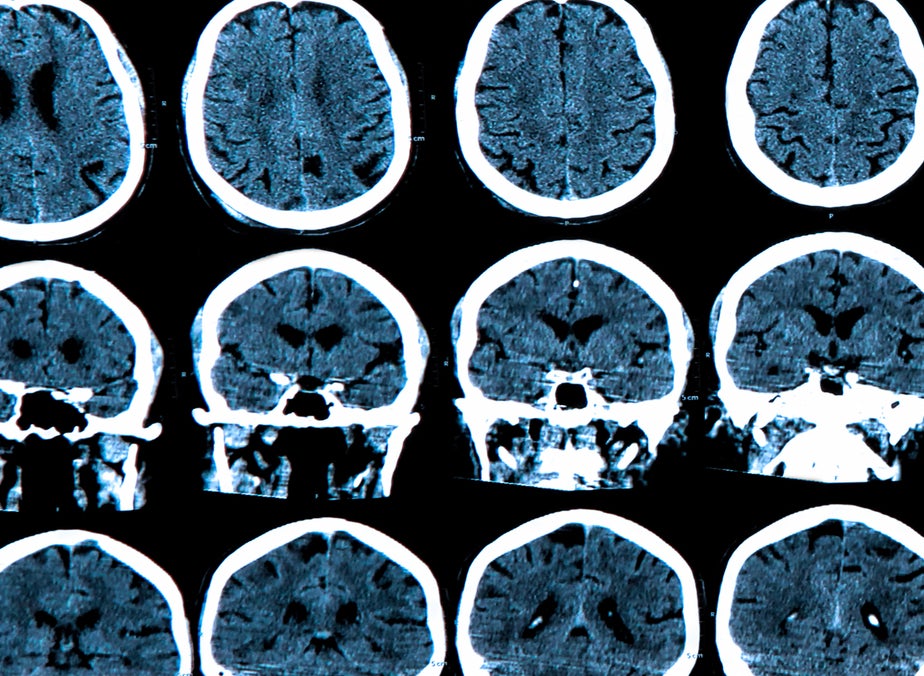
On 14 April 2020, brain disease-focused drug discovery company Cerevance announced it had closed a $45m Series B financing round. The funding was led by three high-profile new investors: GV (formerly Google Ventures), Microsoft co-founder Bill Gates and Foresight Capital.
Cerevance also received new financing from existing investors: Takeda Ventures – the venture arm of the Japanese pharma giant – as well as the Dementia Discovery Fund and Lightstone Ventures.

Discover B2B Marketing That Performs
Combine business intelligence and editorial excellence to reach engaged professionals across 36 leading media platforms.
The company is planning to use this latest influx of capital to support the clinical development of its lead product in Parkinson’s disease, as well advance four other central nervous system (CNS) candidates into trials.
CEO Brad Margus notes: “While much of our industry has focused on only a handful of targets and hypotheses for diseases like Alzheimer’s and Parkinson’s disease, we are pursuing truly novel approaches.”
Understanding Cerevance’s novel methodology
Cerevance’s novel approach to treating neurodegenerative diseases, such as Alzheimer’s and Parkinson’s, relies on its NETSseq technology. Initially created by researchers at Rockefeller University, this target discovery platform is applied to “thousands of post-mortem human brain tissue samples from donors who had neurodegenerative disorders such as Alzheimer’s disease, as well as from controls,” Margus explains.

US Tariffs are shifting - will you react or anticipate?
Don’t let policy changes catch you off guard. Stay proactive with real-time data and expert analysis.
By GlobalDataThe company believes it improves on existing approaches to target discovery for CNS conditions because those “detect only the most expressed genes and often has challenges created by a high frequency of zero values, as well as overall high levels of noise” in the results.
Margus says NETSseq is a “deeper, more sensitive approach” that helps with “discovering subtle molecular signatures linked to the earliest stages of a progressive neurological disease, and consequently the identification of potential therapeutic targets to alter the onset or progression of the disease”.
The lead programme in Cerevance’s portfolio is CVN424 in Parkinson’s; this drug candidate is currently in Phase II efficacy studies. It focuses on the dopamine D2 receptor-dependent, indirect pathway, and aims to provide the clinical benefits of standard-of-care treatments, without the unpleasant adverse effects.
Other targets in the lead target and optimisation stage include a possible drug for resting tremor & L-dopa-induced dyskinesia, another for neuroinflammation in Alzheimer’s and a third for Parkinson’s.
Overcoming Covid-19’s impact on deal-making
Impressively, this funding round was closed despite the ongoing Covid-19 pandemic, which has seriously disrupted companies and economies across the world.
Margus notes: “With the uncertain economic outlook driven by the pandemic, many venture investors seem to be backing away from making new investments so that they can reserve cash to sustain their current portfolio companies for a longer period than previously planned. This is leading to many deals being pulled and making things really tough for anyone raising capital right now.”
When asked why he thinks GV, Bill Gates, Foresight and its previous investors saw through the disruption to the promise of Cerevance’s approach, Margus responds: “I think we were fortunate to find investors who were experts in data analysis and drug discovery who could appreciate the unprecedented data sets we were generating and the speed with which we have been executing.
“They also shared our passion for pursuing new approaches to CNS diseases.” Bill Gates, in particular, has previously taken an interest in neurodegeneration through previous investment in the Dementia Discovery Fund.
GV general partner David Schenkein stated: “Cerevance has a differentiated approach to neurotherapeutics and continues to apply its powerful NETSseq platform to central nervous system diseases.
“With exceptional science, a strong sense of urgency and a leadership team that has previously succeeded together in drug discovery, Cerevance is well-positioned to deliver life-changing therapeutics for patients with brain diseases.”
“While we all hope that treatments and a vaccine will enable us to get control over the ravages of Covid-19, neurodegenerative diseases are not going away,” Margus says. “It is critical that we continue to advance new targets that can mitigate the health and economic effects of Alzheimer’s and other brain diseases.”
Looking to the future
Although Cerevance is very excited by this new investment from GV, Bill Gates and Foresight, Margus notes: “It was wonderful to see our existing shareholders’ continued commitment to invest in us, as they know us better than anyone.
“I think it shows that our investors have been pleased with how we have executed on our plans since our inception.”
The funding boost will support the development of Cerevance’s current candidates into and through clinical trials, generating vital data that Margus hopes will further convince the market that its approach will bear fruit.
“The next time we return to the capital markets, we will have demonstrated a powerful target discovery platform and developed a broad portfolio of novel, clinical-stage therapeutics,” Margus notes.
This may support the company with lucrative partnership opportunities. Cerevance is already in discussions with global pharmaceutical companies about working together to identify new targets and potential treatments for specific CNS diseases.
“The confidence that our new and existing investors have shown in us with this financing will very likely increase a potential pharma partner’s confidence in us,” Margus says.
Importantly, this $45m funding may help to set the scene and position Cerevance for a future initial public offering (IPO); this would be a huge step for a small, speciality drug discovery company. An IPO would allow the company to offer shares to the public in a new stock issuance, meaning it could attract financing from public investors.




